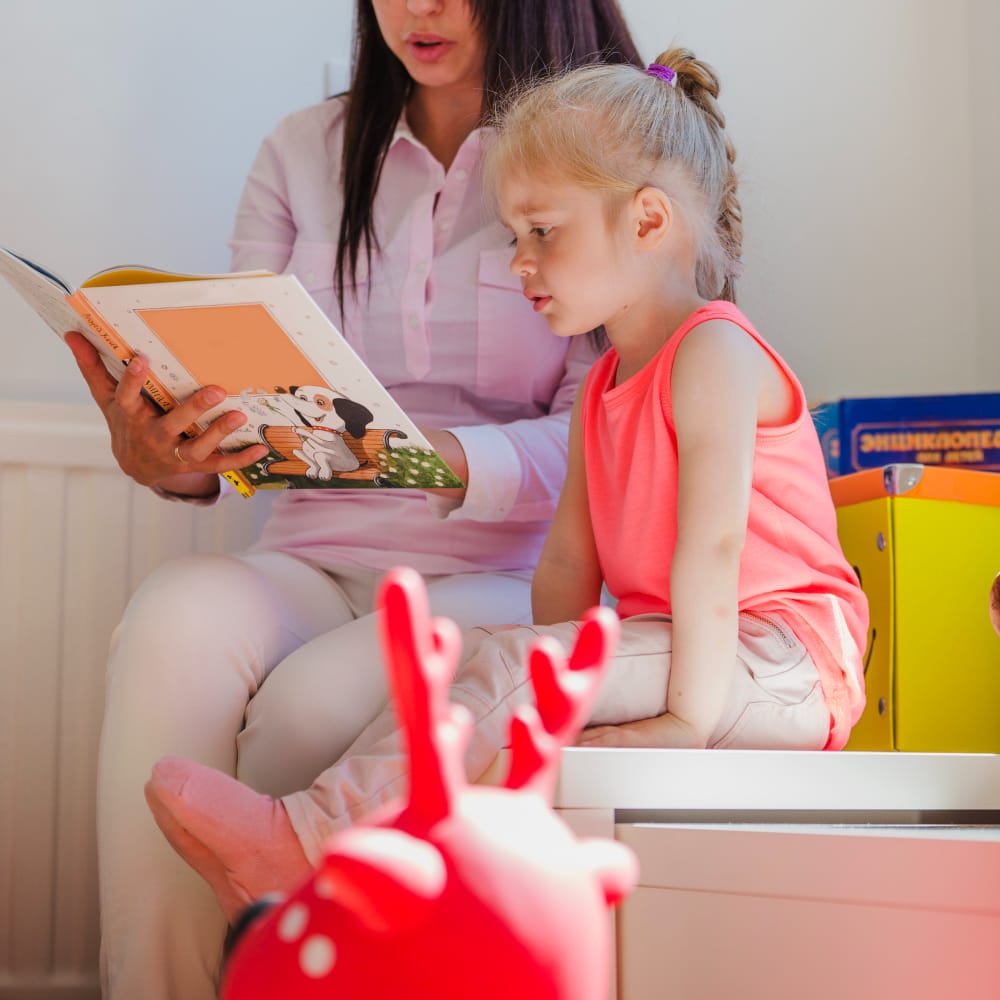 Language Development
Language Development
Our ability to use language sets us apart from other animals and is, in essence what makes us truly human. We use language to communicate our thoughts and feelings to others, to warn them of dangers and to pose questions in an effort to gain greater knowledge and understanding of ourselves and the environment around us.
Newborn babies might not yet be able to talk, but from birth they are able to communicate their needs and discomfort to caregivers through crying. Babies soon start cooing and vocalising sounds and from the age of about 2 months they will actively try to locate the source of a sound. Through babbling and repeating a series of the same syllables your baby is experimenting with the sounds he hears most often. From as early as 6 months your baby will begin to understand the meaning of the word “no” and by 7 months your baby will be able to differentiate between angry and friendly tones of voice. Single words like “mama” or “dada” usually appear by around 9 months and by the age of 1 year your little one can generally use around four or five words in the correct context, but pointing is still the primary means of drawing your attention to an object.
By 18 months of age your little one will be able to pronounce anything between six and 20 recognisable words, will be able to call himself by his name and will begin speaking in short, two-word sentences. His vocabulary will grow rapidly over the next few years – by the age of two years your child’s vocabulary can include up to 100 words, by three years old his vocabulary includes about 300 words and by 6 years their vocabulary will include over 3000 words!
Initially speech is egocentric and serves only to draw attention to the things that are important from your child’s perspective. But this gradually changes and by the age of about 4 years children are able to use language in more sociable, less egotistical ways. They are able to hold conversations and to initiate interactions; generally remember to enquire about another’s well-being (“I’m well thank you, how are you?”) and enjoy listening to tales from the perspective of others.
By the age of four years, “WHY?” questions begin to take centre stage – your little one is curious about everyone and everything around him and you may find yourself feeling more like a walking encyclopaedia than a parent during this stage.
Children generally find it difficult to pronounce the “r”, “y” and “th” sounds in English and you may hear your little one talking about his “fumb”, a “labbit” and the colour “lellow” initially, but between the ages of 4 and 5 years articulation becomes less infantile and strangers will find it easier to understand what he is trying to convey.
From 6 years children learn to use personal pronouns like “I, me and you” correctly. As your child grows he will be able to speak in longer sentences with correct construction, will be able to relay past news and events accurately and in the correct sequence and will be able to use phrases like “please”, “thank you” and “excuse me” without needing to be reminded.
A broad vocabulary and well-developed language skills form the corner stone of academic success. If you are concerned that you child’s language development is not on par, contact you doctor or a speech therapist for further advice.
Related articles:



